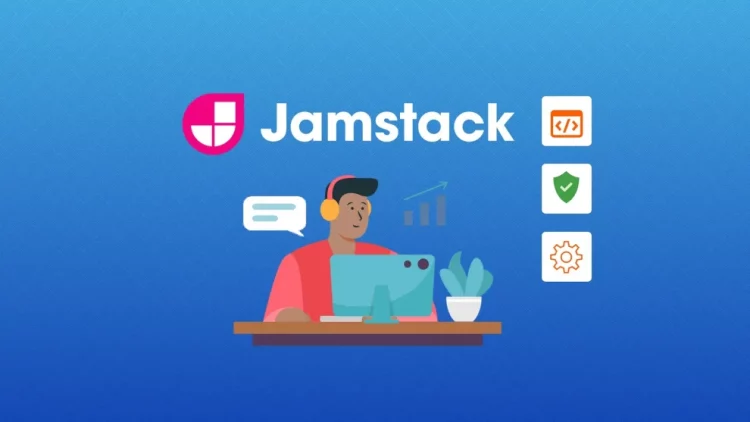Are you ready to dive into the exciting world of web development? With so many programming languages to choose from, it can be overwhelming to determine which ones are the best fit for your projects. Fear not! We’ve done the research and compiled a comprehensive guide to the top 5 programming languages for web development. These languages have proven themselves to be powerful, versatile, and in high demand in the industry. Let’s explore each one and discover how they can elevate your web development game.
What makes a programming language suitable for web development?
When it comes to web development, not all programming languages are created equal. The top 5 programming languages for web development share several key characteristics that make them stand out from the rest:
1. Robustness: These languages are well-established and have a strong track record of reliability and performance.
2. Versatility: They can handle a wide range of web development tasks, from front-end design to back-end functionality.
3. Community support: A thriving community of developers ensures ongoing development, resources, and troubleshooting assistance.
4. Scalability: As your web applications grow, these languages can handle increased traffic and complexity.
5. High demand: Mastering these languages opens up a wealth of job opportunities in the web development industry.
Which programming language is the king of web development?
While there is no single “king” of web development, JavaScript has undoubtedly earned its place at the top. JavaScript is the backbone of modern web development, powering interactive and dynamic web experiences. Its versatility allows developers to create engaging front-end interfaces, handle complex logic, and even build full-stack applications with frameworks like Node.js.
JavaScript’s popularity is unmatched, with a vast ecosystem of libraries and frameworks that streamline development processes. Whether you’re working on a small website or a large-scale web application, JavaScript is a must-have skill in your toolkit. Its ubiquity across browsers and platforms ensures that your JavaScript-powered creations can reach a wide audience.
Moreover, JavaScript’s continuous evolution keeps it at the forefront of web development. With the introduction of ECMAScript (ES) standards, JavaScript regularly receives new features and improvements, making it more powerful and expressive than ever before. From asynchronous programming with Promises and async/await to the upcoming ES modules, JavaScript remains a driving force in the world of web development.
What are the top 5 programming languages for web development?
Now that we’ve explored what makes a programming language suitable for web development and acknowledged JavaScript’s dominance let’s dive into the top 5 programming languages for web development.
1. JavaScript
As mentioned earlier, JavaScript is the undisputed leader in web development. Its versatility extends beyond front-end development, thanks to Node.js, which allows developers to use JavaScript on the server-side as well. With popular frameworks like React, Angular, and Vue.js, JavaScript empowers developers to create dynamic and interactive user interfaces.
2. Python
Python’s simplicity and readability make it an excellent choice for web development. Its clean syntax and extensive libraries, such as Django and Flask, streamline the development process. Python excels in back-end development, enabling developers to build robust and scalable server-side applications. Its data manipulation capabilities also make it a popular choice for data-driven web projects.
3. PHP
PHP has been a staple in web development for decades. Its server-side scripting capabilities power numerous websites and content management systems, including WordPress. PHP’s ease of use and wide adoption make it a beginner-friendly language. Frameworks like Laravel and Symfony provide structure and tools for building complex web applications efficiently.
4. Ruby
Ruby, known for its elegant syntax and developer-friendly features, has gained popularity through the Ruby on Rails framework. Rails follows the “convention over configuration” principle, allowing developers to quickly build web applications with minimal setup. Ruby’s focus on readability and expressiveness makes it a joy to work with, especially for beginners.
5. Java
Java’s robustness and scalability make it a top choice for enterprise-level web development. Its “write once, run anywhere” philosophy ensures that Java applications can run seamlessly across different platforms. Frameworks like Spring and Jakarta EE (formerly Java EE) provide a comprehensive ecosystem for building secure and scalable web applications. Java’s strong typing and object-oriented programming concepts make it suitable for large-scale projects.
What factors should you consider when choosing a programming language for web development?
Choosing the right programming language for your web development project depends on several factors:
1. Project requirements: Consider the specific needs of your project, such as performance, scalability, and integration with existing systems.
2. Development team expertise: Assess the skills and experience of your development team. Choosing a language that aligns with their expertise can lead to faster development and better code quality.
3. Community support and resources: Look for languages with active communities, extensive documentation, and a wide range of libraries and frameworks. This support system can greatly enhance your development experience.
4. Long-term maintainability: Think about the long-term viability of the language. Choose a language that has a strong track record and is likely to remain relevant in the future.
5. Integration with other technologies: Consider how well the language integrates with other technologies you plan to use, such as databases, front-end frameworks, or third-party APIs.
How can you start learning the top 5 programming languages for web development?
Learning the top 5 programming languages for web development is an exciting journey. Here are some steps to get you started:
1. Choose a language: Begin by selecting one of the top 5 programming languages that aligns with your interests and project requirements.
2. Set up your development environment: Install the necessary tools and software, such as text editors, integrated development environments (IDEs), and version control systems.
3. Start with the basics: Familiarize yourself with the language’s syntax, data types, variables, and control structures. Practice writing simple programs to solidify your understanding.
4. Explore web development concepts: Learn about HTML, CSS, and the fundamentals of web development. Understand how your chosen language interacts with these technologies.
5. Build projects: Apply your knowledge by building small web projects. Start with static websites and gradually progress to more complex applications.
6. Engage with the community: Join online forums, attend meetups, and participate in coding challenges. Interact with other developers to learn from their experiences and stay updated with the latest trends.
7. Continuously learn and improve: Web development is a constantly evolving field. Keep learning new techniques, frameworks, and best practices to stay ahead of the curve.
What are the future trends in web development programming languages?
As web development continues to evolve, so do the programming languages that power it. Here are some future trends to keep an eye on:
1. WebAssembly: WebAssembly (Wasm) is a low-level, assembly-like language that runs in web browsers. It promises near-native performance and opens up possibilities for running computationally intensive tasks in the browser.
2. Progressive Web Apps (PWAs): PWAs combine the best of web and mobile apps, offering offline functionality, push notifications, and a native app-like experience. Languages like JavaScript, HTML, and CSS play a crucial role in building PWAs.
3. Serverless computing: Serverless architecture allows developers to focus on writing code without worrying about infrastructure management. Languages like JavaScript (Node.js), Python, and Go are commonly used in serverless environments.
4. GraphQL: GraphQL is a query language for APIs that provides a more efficient and flexible way to fetch data compared to traditional REST APIs. It is gaining popularity and is supported by various programming languages.
5. Machine learning and artificial intelligence: As AI and ML become more prevalent in web applications, languages like Python and JavaScript (with libraries like TensorFlow.js) are being used to integrate intelligent features into web projects.
The top 5 programming languages for web development – JavaScript, Python, PHP, Ruby, and Java – offer a wide range of capabilities and are essential tools in every web developer’s toolkit. By mastering these languages and staying updated with the latest trends, you’ll be well-equipped to build innovative and robust web applications that meet the demands of the ever-evolving digital landscape.
Happy coding!









